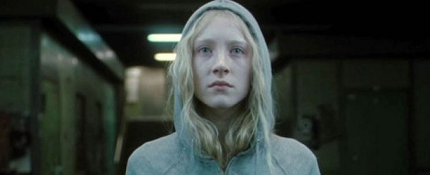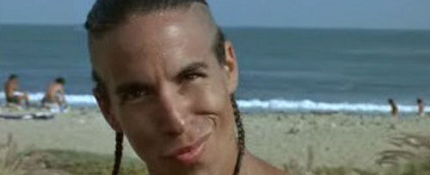 Though I generally try to avoid reviews and/or other "spoiler-ish" literature beforehand for films that I am eager to see, I generally read a lot about films that are in production or are just about to be released, etc. In doing so, not only do I get a gist of what the plot of the movie is, but most times, the same words or phrases keep popping up.
Though I generally try to avoid reviews and/or other "spoiler-ish" literature beforehand for films that I am eager to see, I generally read a lot about films that are in production or are just about to be released, etc. In doing so, not only do I get a gist of what the plot of the movie is, but most times, the same words or phrases keep popping up.For Children of Men, the word "dystopian" is the one that stood out for me. Many films that take place in the future are described as such. Here is a short list of "dystopian" films that have been released in the past 20 years (from Wikipedia):
12 Monkeys
Brazil
Code 46
Dark City
Freejack
Gattaca
The Island
The Matrix series
Minority Report
A Scanner Darkly
V for Vendetta
A few things stand out with this list (and the full list here). For one, I like and/or love almost all of the films (that I have seen), even some of the ones that I would consider "bad" (Freejack, The Island, Demolition Man). Another obvious point is that they all take place in the future. However, not all of them are dystopian, which is defined as "a fictional society that is the antithesis of utopia. It is usually characterized by an oppressive social control, such as an authoritarian or totalitarian government."
Many of the above films don't seem to be dystopian at all: Minority Report, for example, takes place, in fact, in a society virtually without murder, that is not overseen by any sort of totalitarian overlords. It's basically just a story about some groovy psychics, their ability to predict murders (or lack thereof) and their imminent exploitation. The Island isn't dystopian, as society at large is not even aware of what is happening at a certain facility in southern Arizona. The only affected parties are a group of clones - perhaps it tells the tale of a dystopian subculture.
Perhaps I'm picking nits again. My intrigue arose from the use of the word in describing Children of Men. To make a short story long, Children is not a dystopian film. Sure, there are a lot of police onscreen, and the future is most certainly a bleak one, but that certainly can't be the only criteria to earn such a label. The film takes place in 2027, in a time where the youngest person alive is 18 years old, with the world's women all infertile. Why? No one knows
 for sure - it could be pollution, gamma rays, anything. But the film is about hope, redemption, salvation and other such "-ion" words. It's about the loss of many lives towards a greater good. The outlook for many is grim, but not all have given up.
for sure - it could be pollution, gamma rays, anything. But the film is about hope, redemption, salvation and other such "-ion" words. It's about the loss of many lives towards a greater good. The outlook for many is grim, but not all have given up.Amongst the actors, Michael Caine shines brightest, stealing all of his scenes, playing the 2027 version of an eccentric hippie. Clive Owen has found an excellent vehicle for his brand of melancholy, and Julianne Moore adds class as usual. Chiwetel Ejiofor (Inside Man, Kinky Boots) continues his hot streak and path towards stardom, playing a freedom fighter (or terrorist, depending on your viewpoint).
Alfonso Cuaron, the director of Y Tu Mama Tambien and Harry Potter and the Prisoner of Azkaban (the best in the series), has made a film that will be compared favorably to such cult classics as Blade Runner, 12 Monkeys and Brazil, and it is entirely deserving of those comparisons, as it is sad, beautiful and poetic all at once.
91 out of 100


























0 people have chosen wisely: on "Fletch's Film Review: Children of Men"
Post a Comment